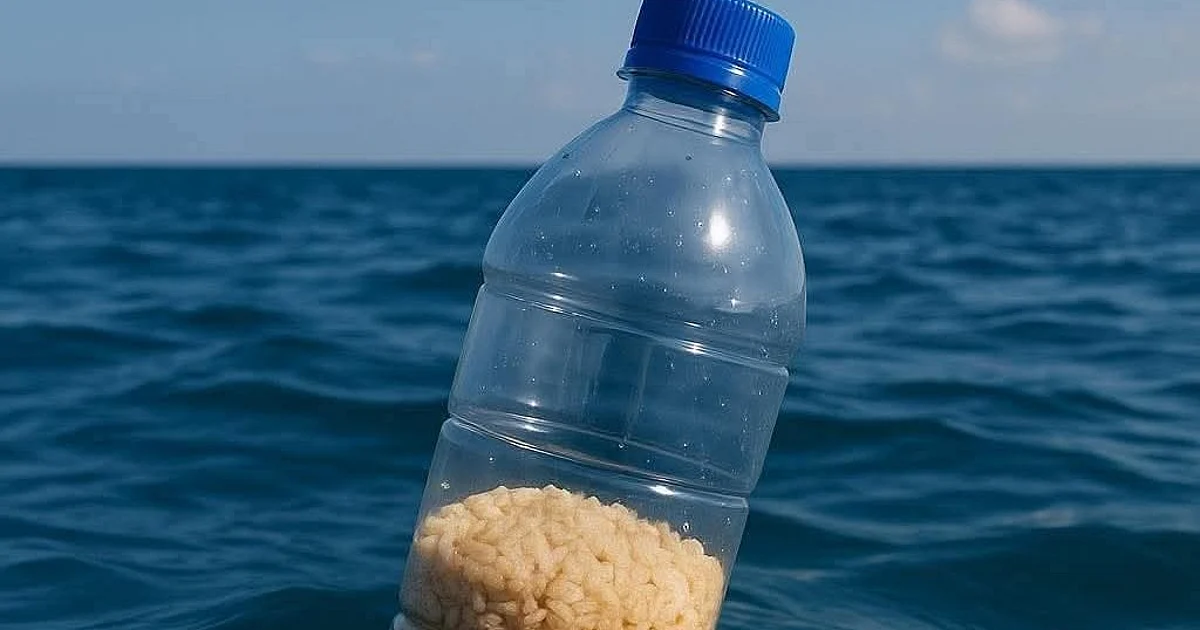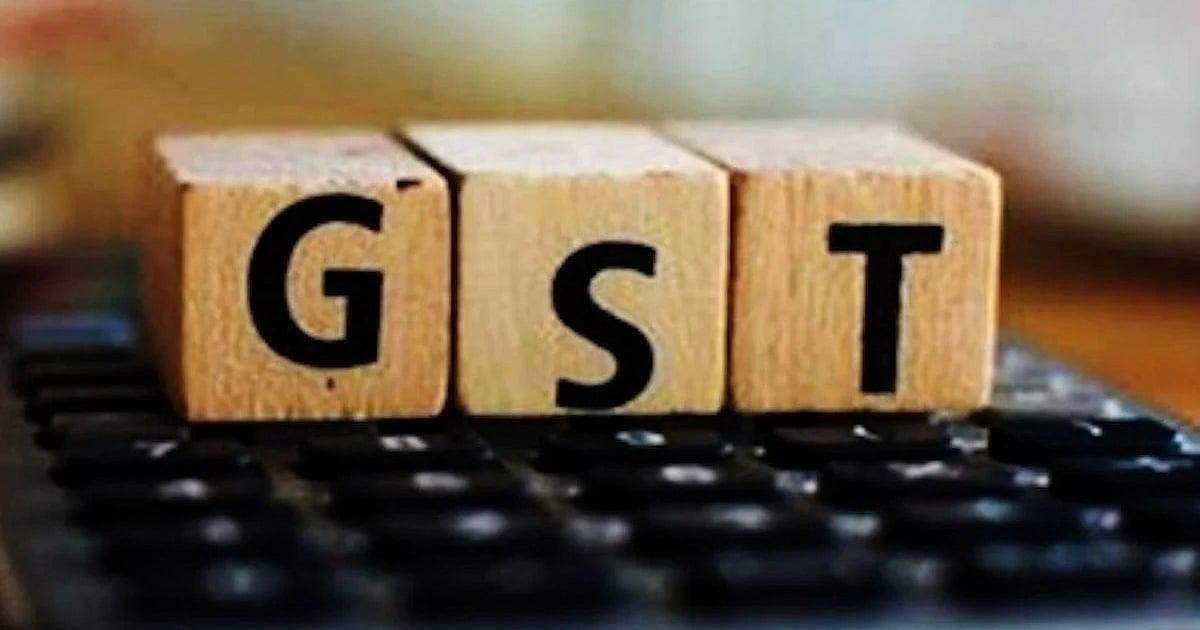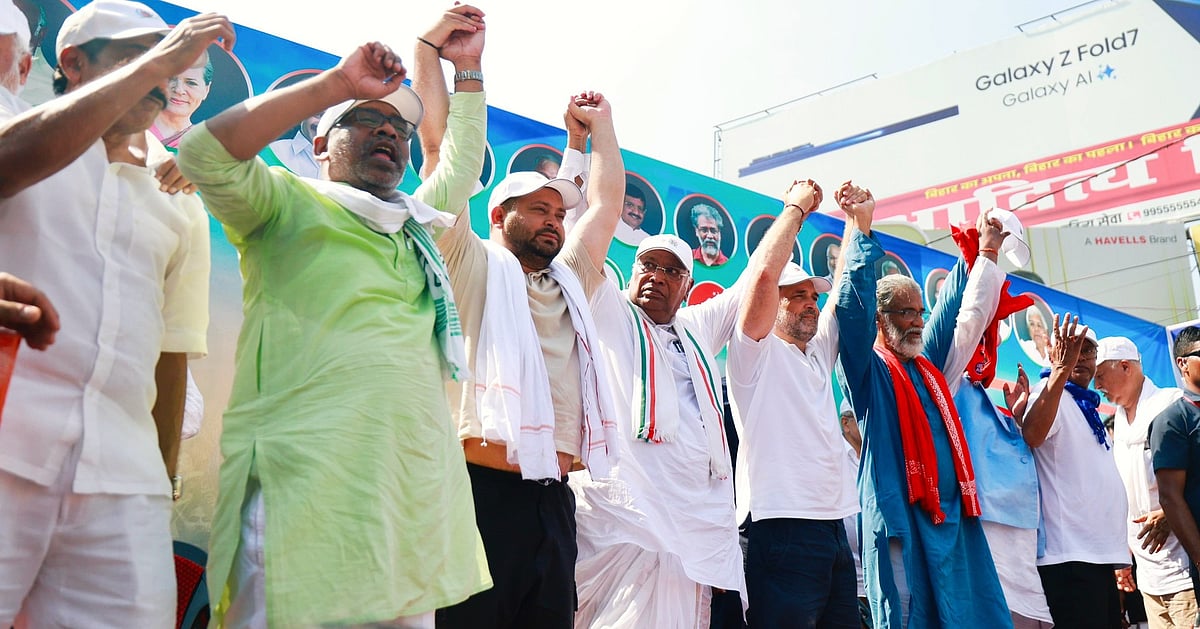National News
As the children of Gaza remain hungry, the hope of a ceasefire dies, as well as extinguishes.

Expressing deep concern for journalists in Gaza, who are unable to feed themselves and their families rapidly, four international media outlets issued a joint appeal on Thursday, 24 July, urging Israel to ‘allow them’ to go out and out of Gaza.
Israel, which controls entry points, has not allowed international media teams in Gaza. During the last 22 months, several hundred journalists have been killed by the Israeli army by drones, sniper fire, bombing and firing incidents. Those who have survived are not being allowed to leave.
The joint statement angered both journalists and activists as they saw it as a public relations stunt. After pleading with Israel to allow journalists to leave, the statement ends saying, “It is necessary that adequate food supply access to the people there”.
Today, we are re -designed to focus on the extremely serious impact of Engineer starvation of Palestinians in Gaza, especially on children.
If you are in America, join the call @USCPR_ACtionhttps://t.co/jhtnnmsidi pic.twitter.com/k3jtu2ovji– Visualizing Palestine (@VisualizingPal) July 24, 2025
The concluding comment was widely seen as a later.
The media circle also has an acknowledgment that outlets did not enough to report on the magnitude of a live-stream massacre. Most of the outlets have refused to condemn Israeli’s atrocities and condemn the reports and investigations emanating from Gaza.
A joint statement on Gaza from AFP, AP, BBC News and Reuters pic.twitter.com/e9b1gtydpu
– BBC News Press Team (@BBCNEWSPR) July 24, 2025
The statement provoked some barbaric comments.
“This is a PR stunt. Your deliberately biased reporting has misled the public about the Gaza massacre for 22 months. Remember the BBC, your lover coverage is that your biased coverage is that Israel is motivated to continue his massacre every day,” One read while others were not asking for the media outlets to explain the media outlets. Did not take.
Bibic – Bibi’s Small Help pic.twitter.com/bkbuftsn7o
– Osita MBA (@Drositamba) July 24, 2025
“Why don’t you take legal action against criminals of torture and murder of your journalists? Or it would be anti -social,” yet another comment was dripping with satire.
“I never felt so. Children are dying of hunger. One after the other, one like a dying flower petals. How do you sleep under our watch.
I never felt so.
Children are dying of hunger. Falling one after the other, one like a dying flower petals. Under our watch.
How do you sleep, the President, Foreign Minister, political leader, diplomat, civil servants – are doing nothing to stop the starvation of Israel … https://t.co/mqexfwyshk pic.twitter.com/okwrk7iibu– Franceska Albani, United Nations Special Report Opt (@Francskalbs) July 24, 2025
Meanwhile, more than 100 international support organizations and human rights groups are warning of large -scale starvation in Gaza and pressurizing governments to take action. Médecins Sans Frontières (MSF), Save the Children and Oxfam are among the signators of a joint statement who say their colleagues and those they serve are “ruined”.
Israel, which controls the entry of all supply into the region, rejected the statement of the organizations and accused them of “serving the promotion of Hamas”.
"Our colleagues and people we serve are being ruined," Medecins SANS Calls Frontiers.
“Children tell their parents that they want to go to heaven, because at least there is food in heaven.” https://t.co/n3rzp2m084– Shanifa Nasar (@Shanifanasser) July 23, 2025
Meanwhile, political leaders keep making grand gestures and long promises, but rarely expect a permanent ceasefire. French President Emmanuel Macron has reiterated that he would recognize the ‘Palestine status’ (under the Palestinian National Authority) at the United Nations General Assembly in September 2025. The UK Prime Minister Kir Stmper issued a statement, asking all the parties to engage in good confidence to bring an immediate ceasefire.
The victim and starvation in Gaza is unexpected and uncertain. pic.twitter.com/ca1vl5zm3j
– Keer Stmper (@Keir_Starmer) July 24, 2025
However, a ceasefire was not seen anywhere in the horizon on Friday, July 25 as the US pulled out of the conversation in Doha. In a statement, we have announced to bring our team home from Doha for consultation after the latest response from Hamas, which clearly shows the lack of desire to reach a ceasefire in Gaza after the latest response from Hamas … Now we will consider alternative options to bring homes home and will try to create a more stable environment for the people of yard. Is.”
While Hamas is insisting at the end of the war and for the Israeli forces to leave Gaza, the US and Israel want Hamas to surrender and dissolve the units of their fighting.
A comprehensible supervisor took a pinch, “We and” Israel “offer two options in” talks “with Hamas: (A) Surrender or we will erase you (B) Surrender and we will erase you”. Hamas does not see any alternative but to keep fighting in such circumstances, Ali Abunima said, the author Fight for justice in Palestine,
And even on the streets of Tel Aviv, Israel, loaded with grain bags, looked agreed.
Watch: Thousands of people took to the streets of Tel Aviv while marching to the Israeli military headquarters to demand an immediate end of the war on Gaza and ongoing siege.
Israeli peace worker Uri Weltman spoke, warning of increasing famine in Gaza:
“People are really … pic.twitter.com/l3i3sh7gok– National Herald (@NH_India) July 24, 2025
Read this very carefully: *One of the fourths of all the people who died of starvation in Gaza in the last 22 months have died in the last 3 days * pic.twitter.com/mvrp8happx
– Prem Thakar (@prem_thakker) 25 July, 2025
National News
Why Consensus Center depends on compensation states

As the GST Council calls for a two -day meeting tomorrow, the fastest point of the dispute will not be the Prime Minister’s Diwali deadline for the “next generation” reforms, but the question of how the states will be compensated for the proposed comprehensive changes.
Improvements may be promised to simplify the tax structure and low rates on essential commodities and services, but state governments are afraid that they will have to struggle with lack of adequate revenue.
At the center of the case, Prime Minister Narendra Modi’s commitment to start a new GST regime by 2025. The proposed overhaul includes compressing the current four-level structure in two major slabs of 5 percent and 18 percent while maintaining exemption on essential food, medicines and education.
In addition, a high 40 percent rate is to be planted on sin and luxury goods, which covers items such as alcohol, tobacco and cigarettes. While the Center frames the move as a “Diwali gift” to reduce prices to consumers and MSMEs and simplify compliance, states have argued that the actual cost will be borne by them.
Many items are expected to shift up to 12 percent from slabs to 5 percent and 28 percent from slab to 18 percent, state governments will come for sharp contractions in tax receipts.
Opposition ruled states, including Kerala, Karnataka, Tamil Nadu, West Bengal, Punjab, Jharkhand, Telangana and Himachal Pradesh, have warned that the proposed rationalization can strip between Rs 85,000 crore and Rs 2 lakh crore annually from their treasures.
These estimates are for 15-20 percent erosion of their GST revenue base. Telangana alone suffers a loss of Rs 7,000 crore.
The compensation end of compensation cess in March 2026 has intensified the demands for an alternative mechanism. Using 2024–25 as the state base year, the minimum five-year-old compensation are pressurizing for guarantee, and the protection of at least 14 percent revenue increase per year that reflects the conditions in the first five years of GST.
Without such security, finance ministers have warned that important welfare schemes, infrastructure projects and development expenses will be compromised.
National News
SC Udaipur declines to cancel the bail of co-accused in the murder case of tailor

The Supreme Court rejected the appeal by the son of National Investigation Agency (NIA) and Udaipur tailor Kanhaiya Lal on Tuesday, September 2,, demanding the bail given to one of the accused in the 2022 murder case.
A bench, including Justices MM Sundaresh and Satish Chandra Sharma, refused to intervene in the earlier decision of the Rajasthan High Court, granted bail to Mohammad Javed, who was one of the many people involved in the murder.
The apex court was hearing an appeal filed against an order passed by Nia and Yash Teli, Lal’s son, Rajasthan High Court to bail Javed.
Looking for Teli, the lawyer argued that Javed played an important role in the conspiracy, alleging that he had closed the main attackers about Lal’s location and movements.
The petition stated: “The murder was done in a communally surcharge atmosphere across the country.” This further alleged: “The chief accused had gathered himself, prepared to kill, collected weapons, resumed and imposed Javed to inform about the deceased’s hideout.”
Describing the sequence of murder, it claimed: “On a terrible date, he entered the tailor shop, disguised as customers and while the deceased was taking his size, the accused put a camera, shouted a communal slogan, attacked and killed the deceased.”
The NIA, while supporting the petition, said that Javed worked in a neighbor’s shop and provided information about red hideout on the day of crime.
Despite these presentations, the apex court opted not to interfere with the bail given by the High Court.
National News
Claiming a ‘hydrogen bomb’ and other takeaways from a remarkable journey

Gandhi reiterated the allegations of “rigging of industrial-mamane” in the 2019 Maharashtra assembly elections, accusing the Election Commission (ECI) of India to help the BJP to help in elections later.
Political observers in Patna believe that the Congress campaign has ignored the BJP. However, BJP leader and Patna Sahib MP Ravi Shankar Prasad dismissed Gandhi’s remarks as “irresponsible”, saying, “Whenever I listen to Rahul Gandhi, inside or out of Parliament, takes time to understand what he is trying to say.
Gandhi’s Pinpoint allegations and a large -scale mob in their voter Adikar Yatra meetings in front of the mob, however, such a thing looks rapidly irrelevant and clear. In the post-7 August press conference, not a single point-by-point rebellion of his allegations has come from either BJP or ECI.
The ECI has only denied Gandhi’s allegations. On August 14, it called Mahadevpura to Gandhi’s claims about “false and misleading”. Earlier in February, the ECI described it as “efforts to disappoint parties” as “completely absurd” by the ECI “disappointed with the poll results”.
Widely criticized and at the press conference, Chief Election Commissioner Gyanesh Kumar dramatically announced that Gandhi either would have to prove his allegations or apologize to the nation “. Since then a fortnight has passed. Kumar is still waiting for the evidence that Gandhi has already presented.
-

 IPL3 months ago
IPL3 months ago‘Any nahhi numba hai’: Furious MS Dhoni loses cool, CSK shouts at players – Watch. Cricket news
-

 Sports3 months ago
Sports3 months ago‘Is MS Dhoni fit or not?’ Cricket news
-

 IPL3 months ago
IPL3 months agoExplained: Why Punjab Kings will get two opportunities to reach IPL 2025 final
-

 IPL3 months ago
IPL3 months agoAnil Kumbal on Shubman Gill: ‘Captaining India is different from the captaincy of a franchise’. Cricket news
-

 IPL3 months ago
IPL3 months agoIPL 2025: Hardik Pandya hit the unique ‘Triple Century’ in T20S.
-

 IPL3 months ago
IPL3 months ago‘No, you can’t take it …’: Shreyas Iyer’s bold statement. Cricket news
-

 National News3 months ago
National News3 months agoIndian Youth Congress started fellowship program for young lawyers
-

 Sports3 months ago
Sports3 months agoHow Rohit Sharma’s bad form with BAT is damaging Mumbai Indians’ IPL 2025 campaign
